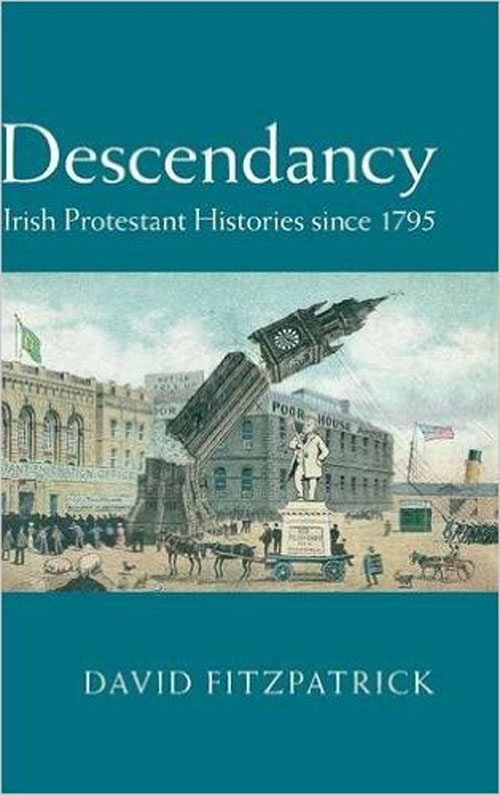Descendancy: Irish Protestant Histories since 1795
Book Review

Descendancy: Irish Protestant Histories since 1795 by David Fitzpatrick
(Cambridge University Press), 2014
271pp., £65 hard, ISBN 978-1-1076-08093-5
This book examines Protestant loss of power and self-confidence in Ireland since 1795, as process of ‘descendancy', a neat play on the Protestant ‘Ascendancy' in the eighteenth century. From the 1790s, there were a growing number of people, predominantly though not exclusively Roman Catholic, who sought political independence from Britain ranging from devolution of power through to complete separation. There was also on the mainland and within the Protestant community in Ireland those who resisted this process either root and branch or through making concessions, for instance, to demands for Catholic Emancipation and land reform in an attempt to head-off or postpone more extreme political demands. Government policies, a combination of carrot and stick, and particularly the failure of Home Rule initiatives in the 1880s and 1890s increasingly narrowed the options available to ministers in both Dublin and London.
David Fitzpatrick, in an important study, charts the declining power and influence of the Protestant community in Ireland and the strategies adopted in the face of this decline, presenting rich personal testimony that illustrates how individuals experienced and perceived ‘descendancy'. Focusing on the attitudes and strategies adopted by the eventual losers rather than victors, he addresses contentious issues in Irish history through an analysis of the appeal of the Orange Order, the Ulster Covenant of 1912, and ‘ethnic cleansing' in the Irish Revolution. Avoiding both apologetics and sentimentality when probing the psychology of those undergoing ‘descendancy', the book examines the social and political ramifications of religious affiliation and belief as practised in fraternities, church congregations and isolated sub-communities.

